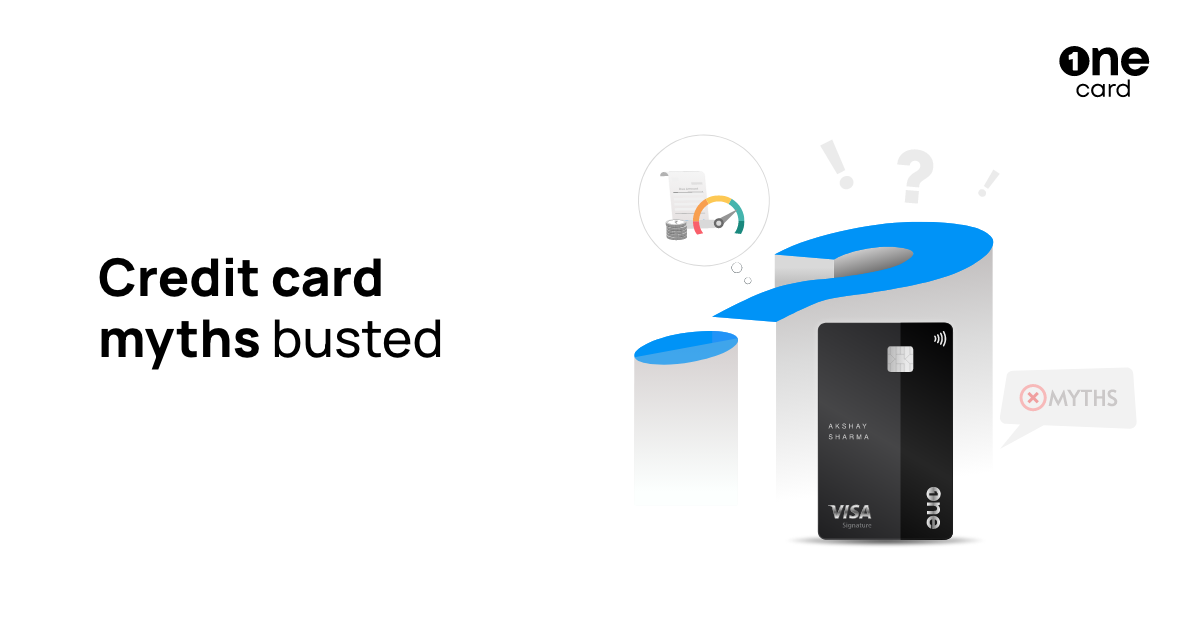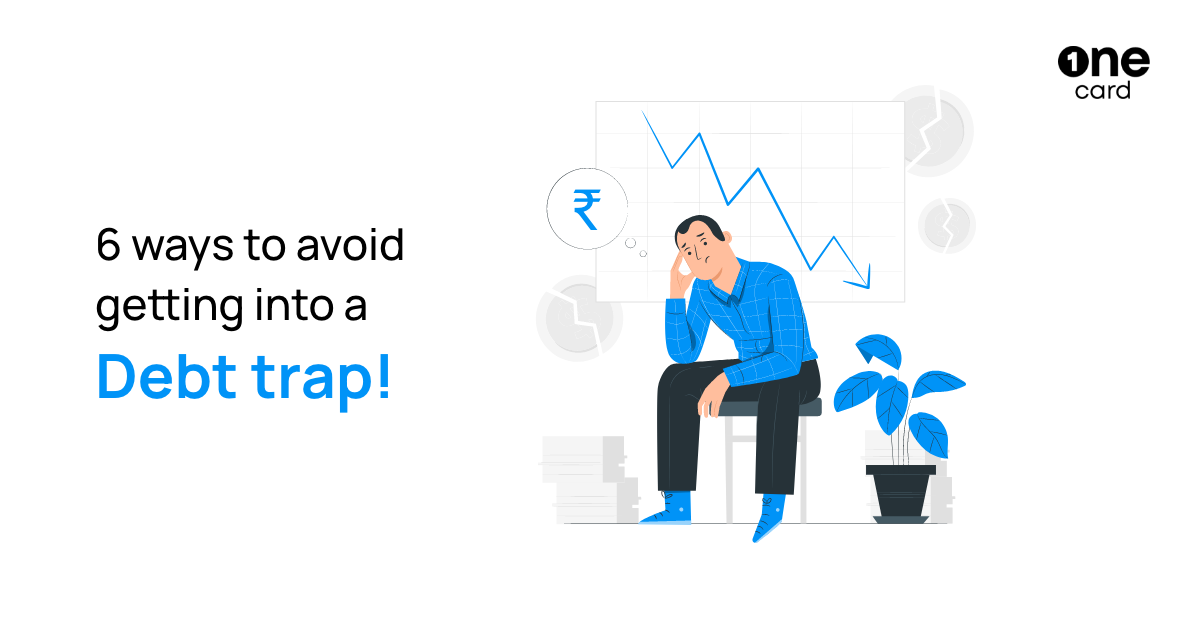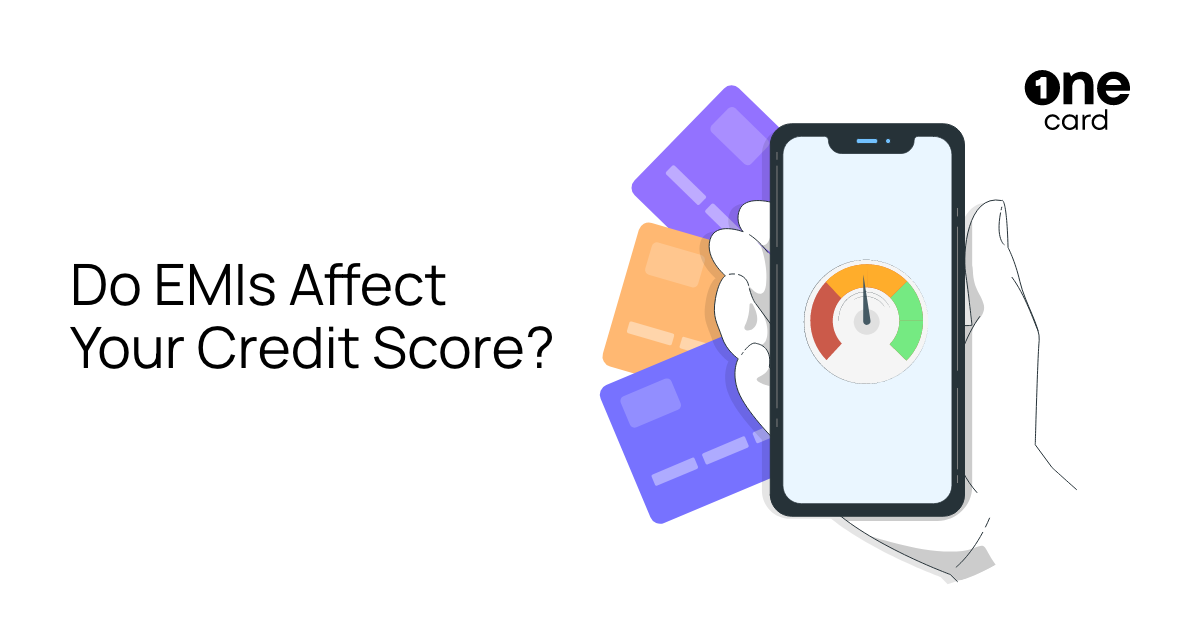5 things about credit cards you have got all wrong
By OneCard | December 01, 2022

Table of contents:
Responsible use of credit cards can build you a great credit score, but unfortunately, that’s not what we hear enough about. What we do hear is credit cards are a debt trap, credits cards make you shop impulsively. This is because most people are ill-informed about credit. Here are a few myths about credit cards you should always take with a pinch of salt.
1. Credit cards are debt-trap
The rules of using a credit card are simple – always pay on time and pay in full. Credit cards are an excellent tool for planned purchases as it comes in handy during cash crunch and also get you great discounts. However, when you overextend to fulfill your whims and fancies that you otherwise cannot afford, you start accumulating debt.
Over time, people realize they are using it wrong and stop using it altogether. While it may stop you from incurring more debt, it also closes your avenues for credit when you really need it. Whether it is your dream home or your child’s education, getting a loan requires you to have a good credit score. And using your credit cards well can help build one.
Note:
Many people tend to cancel their cards with the hope of rehabilitating their credit history. But what they don’t know is that reducing your credit utilization ratio could also harm their score. Instead of this, you can simply restrict the usage and use your card to track your expenses.
2. A high salary means a higher line of credit
Higher-income doesn’t guarantee a higher line of credit, it is how well you use your available credit limit that does. It doesn’t matter that you receive a fat cheque if you have a bad history of repayments.
For a higher line of credit, you need to develop a long and healthy credit history which comes from being consistent with your credit card bills, EMIs, etc.
3. You can avoid interest charges by paying the minimum amount due
A lot of people tend to the pay minimum amount due thinking it will buy them some interest-free time. That’s a slippery slope because paying a minimum balance only helps avoid late payment fees, you would still accrue interest on the outstanding amount.
If you are not able to pay the credit card bill in full, you can convert them into EMIs instead. The interest accrued on EMI conversion will be lower than the finance charges which will be levied. One OneCard, you can do so easily on the app and choose the tenure of your choice.
4. Spending more increases your credit score
The credit score isn’t determined by how much you spend, but it is impacted by how well you used that credit. Credit utilization is one of the major factors that define credit history, among others like payment history, age of your credit accounts, credit mix, etc. As long as you have had a good repayment history across all your credit accounts like a credit card, or loan, you are already on the path to building a great credit score.
5. Your spouse’s credit score can affect yours
A lot of people have a misconception that your credit scores get merged when you get married. Please note that your credit score is exclusive to you and isn’t linked to your partner’s. Unless you sign up as a guarantor or co-sign a loan with your partner, your credit score will not be impacted by your partner.
If you are looking to get a credit card, check out OneCard. A mobile-first credit card gives the control back to you, so you can always stay in charge of your credit.

**Disclaimer: The information provided in this webpage does not, and is not intended to, constitute any kind of advice; instead, all the information available here is for general informational purposes only. FPL Technologies Private Limited and the author shall not be responsible for any direct/indirect/damages/loss incurred by the reader for making any decision based on the contents and information. Please consult your advisor before making any decision.


Sharing is caring 😉